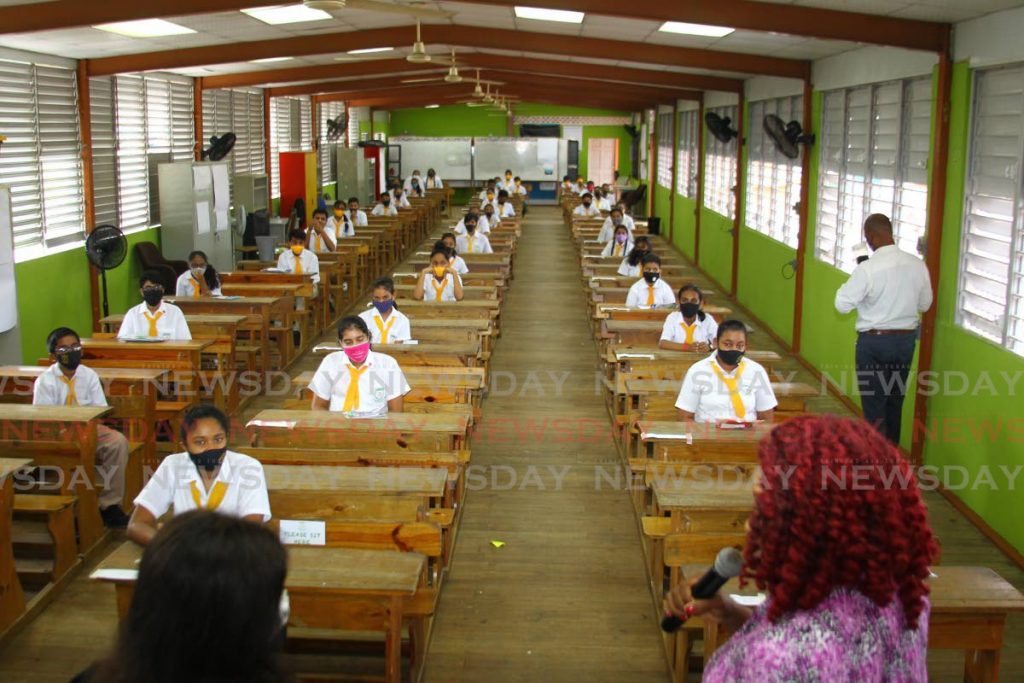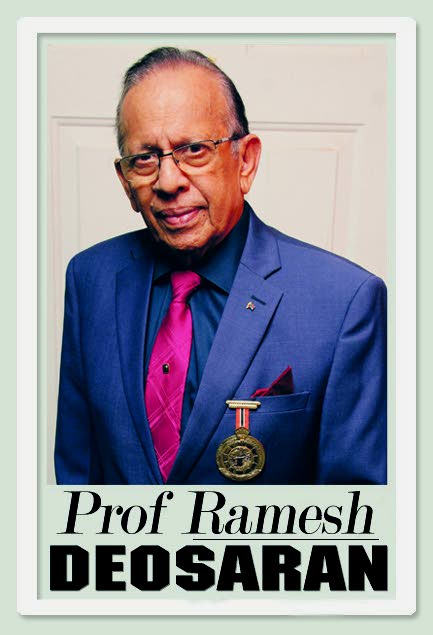A 'doctor and lawyer' race

Education and crime are two of the most politically explosive issues in our society today. The former is more troubling, since some commentators put the reform required inordinately on ethnicity.
More precisely, the 1960 PNM-framed Concordat gives the denominational boards certain powers in both school management and student selection. The controversial claim is that the Concordat blocks educational equity while allowing, for example, a disproportionate number of successes in the SEA compared to government schools.
As recorded in this column last December, the school boards made a public declaration: “Don’t make the Concordat a scapegoat for the failures in education.”
While it may be justifiable to have a look at the Concordat, the policy promises of the government cannot be ignored. The government accepted its National Task Force in Education report (1993-2003) which pledged: “The educational system of TT must endeavour to develop a spiritually, morally, physically, intellectually and emotionally sound individual that ensures that cultural, ethnic, class and gender needs are appropriately addressed.”
What are the measures from then to now on each or all of these policy criteria? How can the ministry “ensure” the “cultural and ethnic needs” of students? The fact is that the only visible measure arises from the “intellectual” criterion, that is, through the SEA, and this at some troubling “emotional” and “physical” strain.
More than this, the grammar-driven SEA competition is really a “doctor and lawyer race.” The majority of top passes aim for these and related professions, not technical and vocational careers.
New minister Dr Nyan Gadsby-Dolly showed an early understanding of the fundamental challenges facing this crucial ministry and which have been unfortunately bypassed by previously ministers. Headlines like “Girls grab top 3 SEA spots” may deserve celebration. but there are bigger issues behind. The country awaits.
Doing away with the Concordat will not solve the fundamental problems of our education system, especially if the major objective is merely ethnic balance.

Three things here. (1) In my 2016 book, Inequality, Crime and Education, I took for 2011 all denomination and government primary schools and examined, among other things, what percentage of their students had over 90 per cent in the SEA exam.
I found: “While Hindu and Muslim schools had an average of nine percent of their students passing the SEA with 90 per cent and above, the Christian primary schools (Catholic, Anglican, SDA, Methodist, Moravian, etc) had an average of only 1.5 per cent of (their) students passing with 90 per cent and above. Government primary schools had an average of 2.9 per cent.”
The Trinidad Muslim League (TML) had the highest – 20.5 per cent scoring over 90 per cent. The national average was 4.5 per cent.
(2) These differences, which have got wider since 2011, reveal that it is not merely a Concordat, race or religion barrier. Some denominational schools do much better than others.
In fact, while shaking hands and giving prizes to the “top students,” the Ministry of Education will be well served if it sensibly seeks to understand why these differences appear so consistently.
It is important to note that as of now there is a limited number of “prestige school” places (high-performing schools) for form one entry: an estimated 5,000 places (26 per cent) for the 19,544 who wrote the SEA this year.
The ministry proudly claims that students scoring above 90 per cent moved from 1.61 per cent in 2020 to three per cent in 2021. In 2011, the percentage was 4.5 per cent of 17,280.
(3) The data collected also shows that the private schools had the second highest percentage (12 per cent) scoring over 90 per cent in that year’s SEA.
Wealthy parents are now sending more and more children to these successful private schools. Poor parents strain to do so. How will this apparent “educational inequity” be treated? How will doing away with the Concordat help here?
As I explained in the book, you cannot tackle educational inequity in this society without examining how economics and democracy (constitutional freedoms) themselves are inextricably connected. And especially since the court has ruled that through long practice, the Concordat has taken on constitutional clothing.
Are we then stuck with educational inequity in our democracy?

Comments
"A ‘doctor and lawyer’ race"